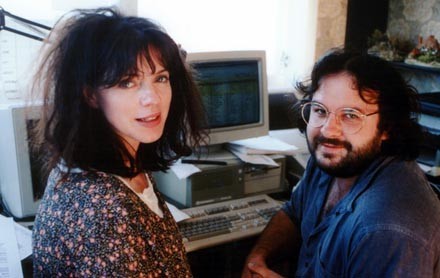I am an angry feminist
 Generally speaking, I try to keep my writing here positive, lighthearted and sometimes a bit esoteric. I don’t like to rock the boat too much, mainly because I dislike arguments and even more than that, I hate internet arguments. At the moment though, I’ve had it up to here with keeping quiet and subdued.
Generally speaking, I try to keep my writing here positive, lighthearted and sometimes a bit esoteric. I don’t like to rock the boat too much, mainly because I dislike arguments and even more than that, I hate internet arguments. At the moment though, I’ve had it up to here with keeping quiet and subdued.
I am a feminist. I wear cardigans. I figured I should just come out and say that. I think more people should come out and say that. While I can remember a time when I might have been nervous about admitting this, nervous about the connotations, I now realize that it is vitally important to claim this title. People are so afraid of this word, afraid of the box it puts them in. This is why I urge you to recognize your own inner feminist, if for some reason you have not already. Caitlin Moran said it best, and I’m paraphrasing here, that if you have a vagina and want to be in charge of it, you are a feminist. Granted, you can also not have a vagina and be a feminist, but for the sake of you ladies that are too afraid to get with the program here, let’s simplify things.
What are the connotations here? It means I care about laws that are passed about women’s health. It means I care about the stories that are told about women, or not told for that matter. It means I care about equal pay and opportunities for women. And because I’m paying attention, because these things matter to me, it means I’m keenly aware of the cultural subtexts that are going on day in and day out about what women are capable of. It means I get angry.
I am an angry feminist. I get angry a lot. This is what happens when others are constantly trying to define you as lesser, repeatedly trying to take away your human rights and perpetuating a culture of male dominance. You have the choice to get angry or risk beginning to believe these lies. I know when I was younger I definitely fell victim to this. Now, every time I hear “women are crazy” a little flame of rage ignites in me. When professional women are defined by their diets and whether they plan to stay home with the kids, how can you not be immeasurably frustrated?
Every day there is something. But I will not let my soul be bled to death by a thousand tiny pin pricks. I’m thankful for this anger, this reminder that there are still bridges to cross and progress to be made. It is a reminder that I haven’t given up, that I haven’t settled with “that’s just the way it is.” This anger gives me power.
Occasionally, all of this is a nuisance. Sometimes I wish I could just watch a movie without taking into account the blatant misogyny. Sometimes I wish I could tune out so many dim-witted comments. In the age of the internet opinion, there are so many stupid comments. But who would I be then? It might be more comfortable in a haze of ignorant bliss but it certainly does me no good in the long run.
The only way out of this mess is for us to join together, for all of us to come out from this fog and defeat that which plagues us, men and women alike. Here is your chance to come into the light. I hope you’ll join me.
Photo courtesy of the Los Angeles Area Chamber of Commerce Collection, USC Libraries. To see more photos from early Los Angeles, go here.
husbands and wives
The other day Shawn emailed me a link to this blog from the writers of Kill List, Ben Wheatley and Amy Jump. I was excited to find out that the duo are actually a married team. Seeing this blog brought up a few things for me since, even though I’d looked at details of the film previously, and know Ben Wheatley, also the director, by name, I had no recollection of Amy Jump at all. Granted, in most cases, directors get more attention than writers do, so it’s easier to make an impression. It’s also Amy’s first and only writing credit (according to imdb). It did really make me consider the role of women in film (as if this isn’t something I’m always thinking about) especially regarding husbands and wives that work together.
On our own film projects, Shawn and I work together, particularly in the writing process. By talking to each other we are able to refine concepts or move forward when one of us might be stuck. It works out pretty well. We balance each other out. That is not to say we don’t have conflicts of opinion, but I think for the most part we compel each other and help stories move along. It’s nice having a partner to work with. When it comes to what we do, things are fairly balanced; though, that isn’t to say exactly equal, we both have our own strong points.
Knowing about our own balance of creative input, it becomes interesting to consider husband and wife teams who are more successful and more present in popular media. If I were to mention Peter Jackson, everyone would know who I’m talking about. But what about Fran Walsh? Raise your hand if you know who she is. Well that’s lovely Fran up top with her husband Peter Jackson. They’re also a writing team (and producing at this point) and have been since Meet the Feebles back in 1989. Together they’ve written some amazing movies from the beautifully haunting Heavenly Creatures to the blockbuster Lord of the Rings Trilogy (also working with Phillipa Boyens). Yet, Walsh remains mainly out of the limelight, despite winning 3 Oscars. Personally, I can’t help but believe it it because of Walsh and Jackson’s collaborations that they have made such interesting films, not just one’s singular talent.
It’s impossible to know for sure the reasons why one person is famous and the person right next to them is not as famous. It could be a personal choice but I doubt that is the case. It could be the cult of the director, giving more weight over other positions in film production, no matter their importance or role. Sadly, and more likely, it could just be that women do not get recognition in the film industry. With the exception of a few actresses, it’s not easy to make a name as a woman in film. How many successful woman directors can you name? You might be able to count them on your fingers. Obviously this is something that is pervasive in almost all industries, still in 2011, but it’s even more extreme in an industry with so many subdivisions where it is easy to tuck women away in “appropriate” positions.
I don’t know that I have any final conclusions about these ideas, nothing that isn’t already known, but I think it’s important to bring up every so often, just as a reminder of what progress has been made and is still yet to be made.







